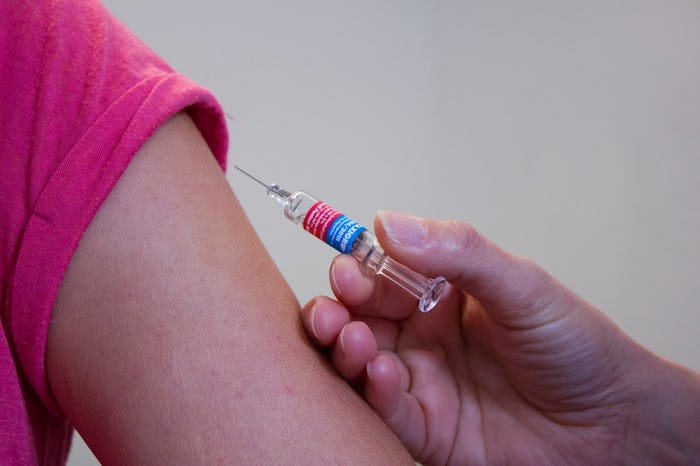When you have a new baby, a doctor's visit can bring on a host of emotions. It's always exciting to find out how much your baby has grown, but when it's time for shots, that excitement can turn to pure fear. Although the rational adult in you knows that vaccinations are an important part of keeping your child healthy, the emotional (and often irrational) parent in you is completely terrified of anything that could cause your child any harm. For your baby's comfort and your peace of mind, you need to know how to prepare your baby for getting vaccinated.
Getting a shot can be painful and scary for both baby and parent, but they are a very important part of your child's overall well-being. As Patricia Stinchfield, a pediatric nurse practitioner mentioned in Parents, vaccinations are as important as clean water and sanitation for keeping your children alive and healthy. You can do your part to eliminate some of everyone's anxiety by allowing your child to nurse, bringing along a favorite toy, and placing baby on your lap while the shots are being administered.
At your next doctor's visit, try a few of these techniques to make the vaccination process a lot easier for you and your baby to handle.
1Provide Comfort
As mentioned in Parents, you can do your part to ease your baby's pain by giving him some extra cuddles while allowing him to nurse or drink from a bottle.
2Ask For A Combination
According to Baby Center, you can ask your pediatrician for a combination of shots, which can reduce the total number of vaccines your child will need. For example, Pentacel is one shot that combines the DTaP, polio, and Hib vaccines.
3Bring A Favorite Companion
The Centers for Disease Control and Prevention suggests packing your baby's favorite toy or book to use as a way to comfort a child who may be upset.
4Pay Attention To Scheduling
Pay attention to your family's calendar when making appointments for vaccines. Do your best to avoid family vacations or other special events right after your child is scheduled to be vaccinated. Instead, try to schedule shots when you are close to home, in case your child has a reaction, as recommended by Baby Center.
5Make Eye Contact
You may not be able to communicate with your baby in words, but he will take cues from your body language. Look your baby directly in the eye and smile, to let them know that everything is ok, as recommended by the Centers for Disease Control and Prevention.
6Use An Anesthetic Cream
According to What to Expect, your pediatrician can prescribe an EMLA anesthetic cream for you to administer to your baby an hour before she is schedule to get her shots. The cream will block the nerves from sending a pain signal to the brain.
7Give A Massage
A light massage can help ease your baby's discomfort after a painful shot, according to Everyday Health. Gently massage your baby's skin in the area where the shot was given to provide a distraction from the pain of the vaccine.
